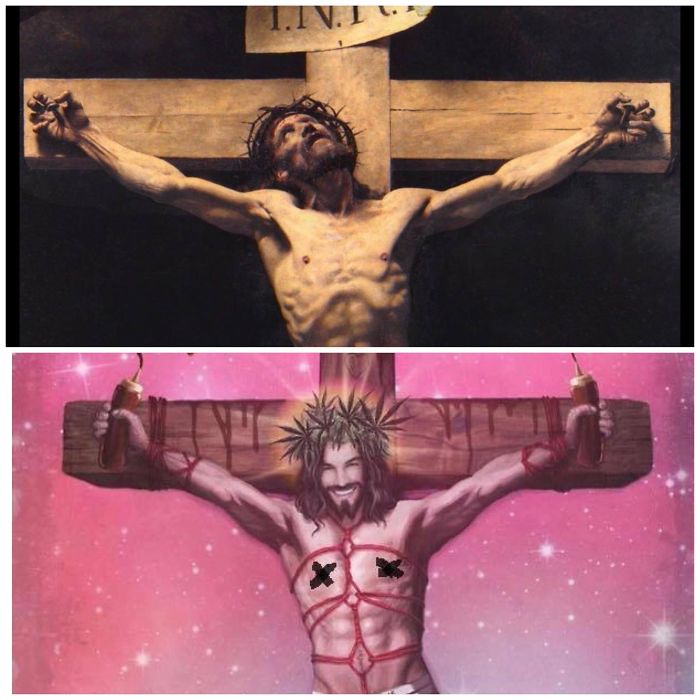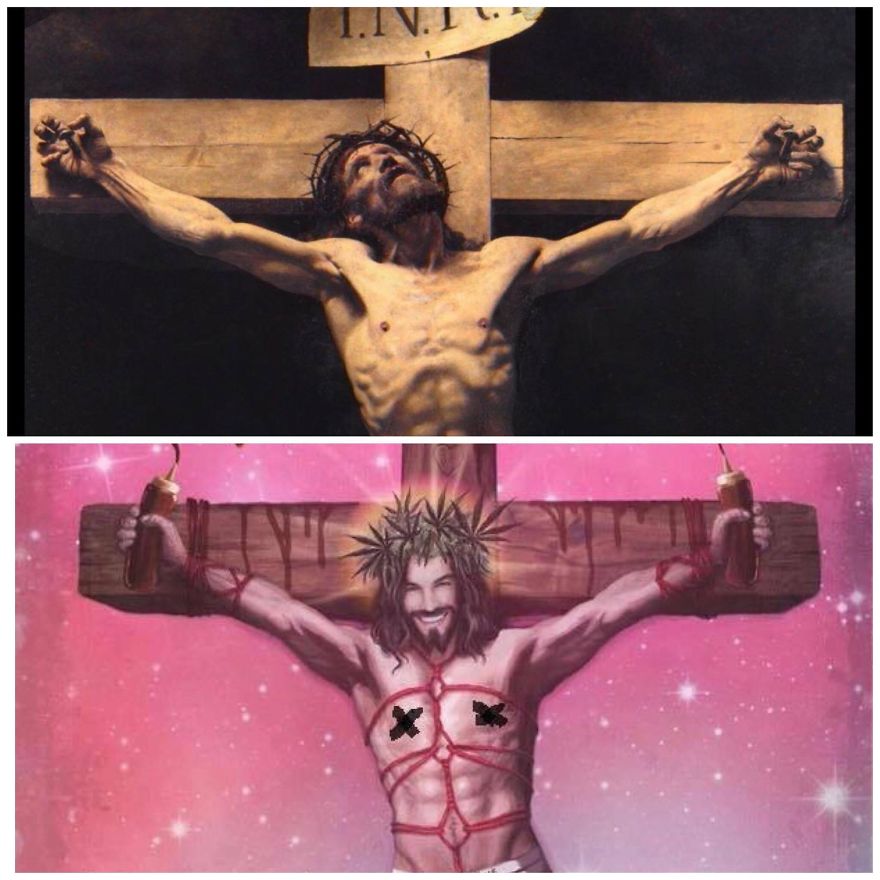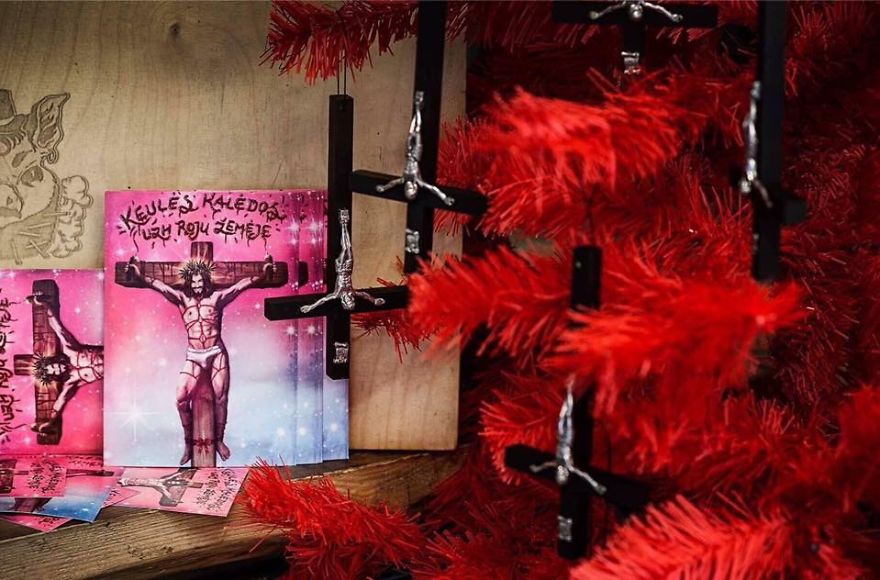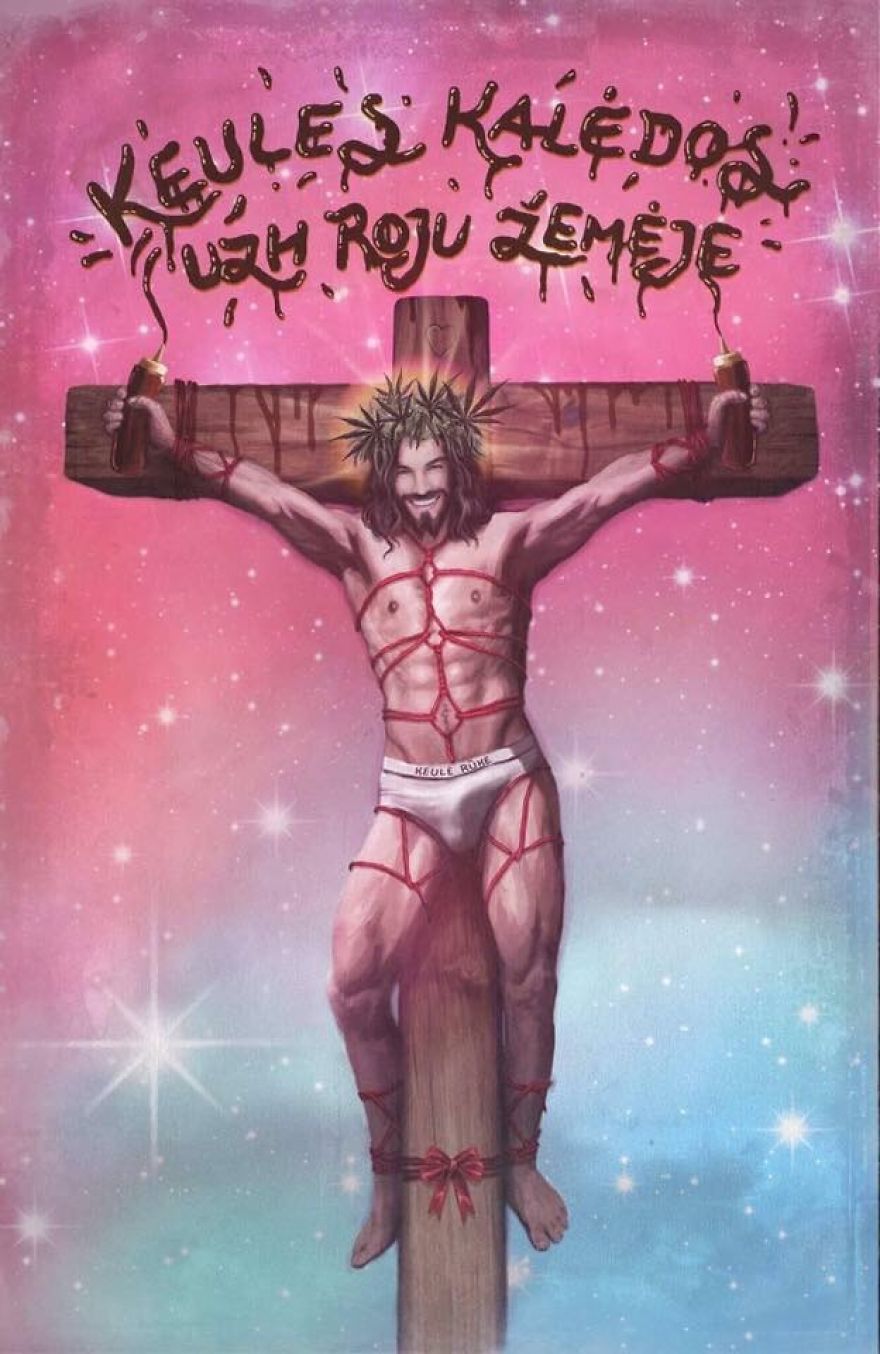The irreverent little restaurant behind the world-famous Trump-Kissing-Putin mural is in hot water with authorities in Lithuania for another bit of social commentary-as-advertising it did that, according to some, offends Christianity and public morals.
Lithuania’s Consumer Protection Agency fined Keulė Rūkė – a BBQ restaurant based in an artsy Vilnius’ neighborhood – 1500 euros for “mocking religion and offending public morals” with its depiction of a smiling crucified man crowned with marijuana leaves squirting BBQ sauce into a Christmas message.
The owners of the restaurant known for its artistic, socially-conscious, and often provocative advertisements explained that the “offending” ad was meant as a satirical jab at depictions of violence that are allowed if they are religious, but prohibited if not.
“As artists and entrepreneurs, we felt it well within our rights to freedom of expression to critique this double standard. So our artist reinterpreted the iconic, violent image of a crucified man venerated by Christians in a more light-hearted fashion,” says Dominykas Čečkauskas, owner of Keulė Rūkė. “Yes, it was intended as social commentary and, yes, social commentary sometimes offends some people. But who could imagine an artist being punished for blasphemy in this day and age, in a European Union member-state with a constitution that is supposed to protect freedom of expression?”
According to Dominykas, it is wrong to equate public morality with Christian theology and it is unconstitutional to grant one group’s religious icons preferential protection from artistic reinterpretation.
“Nothing in the artwork is obscene. Nothing in the artwork encourages anyone to commit evil acts. We even took out the most violent elements of a crucifixion. Last we checked, nothing prohibits artists from depicting a person hanging on a cross, and nothing requires that it only be Jesus Christ,” observes Dominykas.
What is truly offensive, according to him, is that, apparently, the only other party consulted by the Consumer Protection Agency in adjudicating the case were representatives of the Lithuanian Catholic Bishops’ Conference.
“One might reasonably wonder on what grounds a single private religious organization is called in by a government agency to advise it on what kinds of artistic expression should and shouldn’t be allowed. It makes me wonder whether Lithuania is a theocracy, or a democratic republic,” says Dominykas Čečkauskas.
The owners of Keulė Rūkė intend to appeal the ruling.
“We are confident that a regular court will render a sensible decision that doesn’t sacrifice freedom of expression to the feelings of a few overly-sensitive religious people,” says Dominykas.
2Kviews
Share on Facebook






3
0